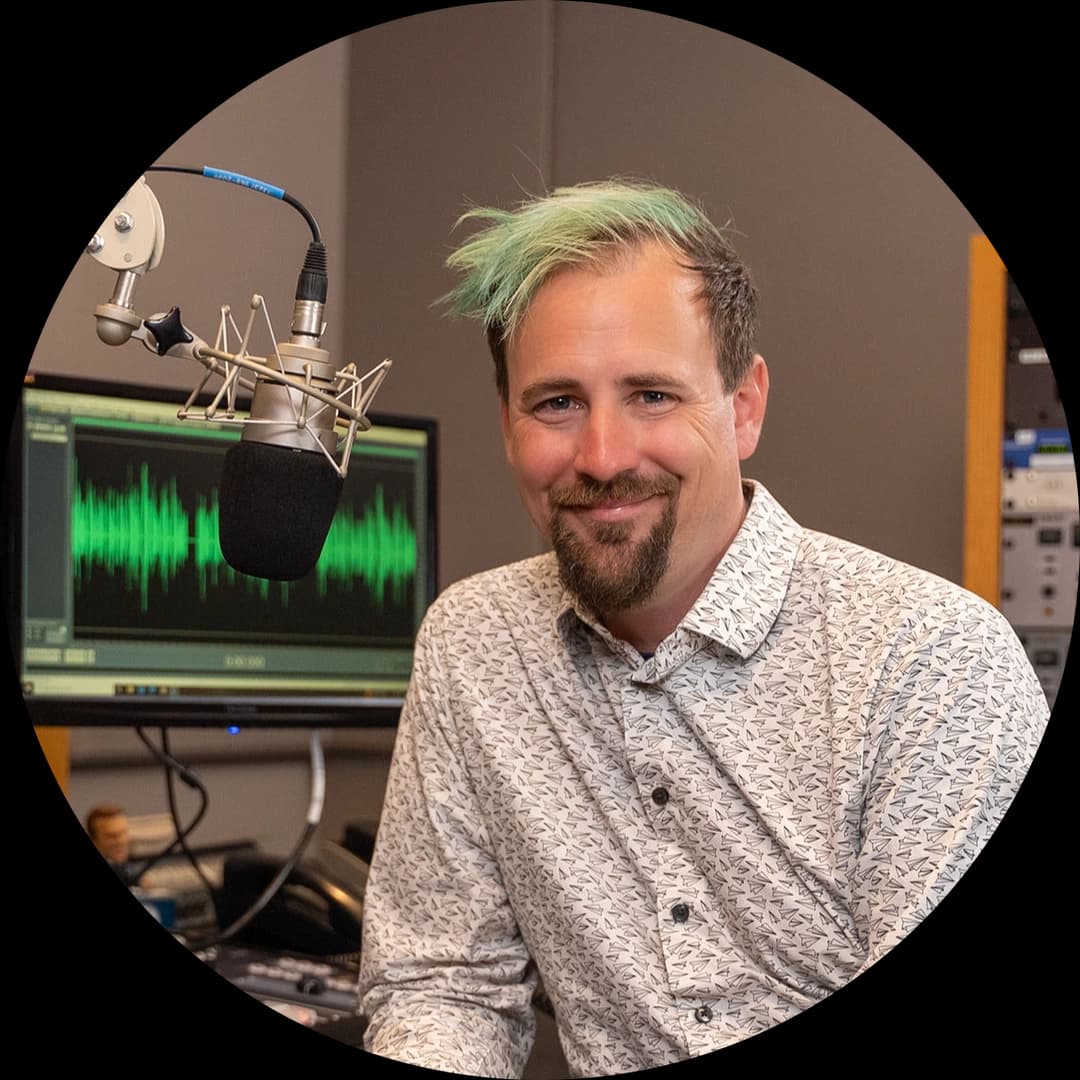
articles / Pop Culture
How the LA Phil Is Forging a Path to Greater Diversity
 Los Angeles Philharmonic bass trombonist John Lofton | Photo by Mathew Imaging
Los Angeles Philharmonic bass trombonist John Lofton | Photo by Mathew Imaging
Hit play below to listen to our extended Arts Alive interview with John Lofton discussing the LA Phil’s new Resident Fellows program.
When conductor Gustavo Dudamel was first getting into classical music as a kid growing up in Barquisimeto, Venezuela, he wanted to play trombone like his dad, Oscar. But when the time came for young Gustavo to choose an instrument, his teachers said his arms were too short to play the trombone and they handed him a violin instead.
It was the opposite story for LA Phil bass trombonist John Lofton. Sometimes the thing that determines what instrument a person will play is genetics.
“I started out in third grade and I was the tallest kid in class,” Lofton told me recently in an interview at the KUSC studios, “and when the band director came around and looked for trombone players, he picked me because I could reach out to the furthest positions.”
John Lofton has been playing trombone ever since those days in 3rd grade in his hometown of Philadelphia. His journey from there to becoming the bass trombonist of the LA Phil wasn’t always easy, though. In 7th grade, he was one of the only black students at his school and he said his experience there was aided by an important mentor.
“There was a woman who volunteered in the school and her background and my background were completely different, but we—we, meaning three people from my neighborhood were the first people to integrate into this area—and so she came in as a way to help buffer that whole experience, which I can tell you wasn’t really an easy experience. But, you can imagine a seventh and eighth grader going to opera, chamber concerts, and orchestra concerts. It was an incredible experience that really opened my mind to these possibilities.”
Now, John Lofton wants to make those possibilities available to the next generation of young musicians from traditionally underserved backgrounds. That’s why he and his fellow musicians of the LA Phil are launching the first-ever Resident Fellows program as part of the LA Phil’s upcoming 100th anniversary season. Applications are open right now. Resident Fellows will spend 20 weeks of the 2018-19 season as members of the LA Phil. They’ll tour with the LA Phil. If they complete the full three-year program, they’ll automatically pass the first round of any future LA Phil auditions.
Lofton says, the most important purpose of the Resident Fellows program is “to add to the queue of potential members in orchestras of members of our community who are from traditionally underrepresented groups.”
Back in the 70s and 80s, orchestras in the United States started conducting the first rounds of their auditions anonymously. Players would stand behind an opaque screen and the conductor and musician’s audition committee would listen to the audition without knowing anything about the player. Winners would advance on musical merit only. The goal was to diversify a traditionally white and male-dominated profession. Almost immediately women started winning auditions. Before anonymous auditions, the average orchestra was about 5% female. Today, it’s more than 30%. Not equality, but a great leap forward.
While they did help women win orchestra jobs, blind auditions haven’t been as successful when it comes to race. Just ask John Lofton.
“I felt that I was the best player,” Lofton said, “but when I got in front of the screen, I was rejected. The player that actually got the job came up to me and said, ‘You played better; you should’ve gotten the job.”
That was several years and a couple of orchestras ago. Today, Lofton is a trombonist with the LA Phil. But one of only two black musicians in the orchestra. And that’s a fact that Lofton and the LA Phil are working to change with the new Resident Fellows program.
“We don’t have what we could consider to be an adequate representation of our communities,” Lofton told me, “in terms of the demographics of the orchestra. There are a couple of reasons for that: first of all, there are not a lot of jobs. Winning a job is very difficult. But what’s difficult becomes impossible when there are no people from various races or underrepresented groups in the queue of auditioners. I think that’s the key. To get a critical mass of people [from these groups] who are qualified to win an audition.”
Lofton said the Resident Fellows program is open to anyone. There are no restrictions, including age. And he hopes the program benefits people in situations similar to one of his students who lives in Baltimore and who Lofton teaches via Skype.
“He’s got a very difficult living situation,” Lofton said, “and what’s going on in his family life is also very difficult. Periodically, he has to pawn his trombone in order to be able to support his family. So, that becomes a real challenge.”
In addition to helping musicians from traditionally underrepresented groups win jobs in the major orchestras of the world, John Lofton says he also hopes the LA Phil’s new Resident Fellows program helps to address the issues of bias in the audition process.
“If you have the experience of having sat beside a person for those two or three years,” Lofton said, “many of those barriers become less important because you have now resolved that issue. These are not people who are strangers to this genre. These are people who you have been colleagues with. I think that is one of the great added values of this program is to give an opportunity to people to actually bring people together in a situation that is a meaningful situation.”
If you, or a musician in your life, is interested in applying for the new LA Phil Resident Fellows program, click here. The deadline to apply is January 29th.






